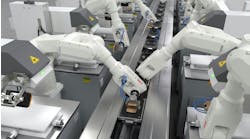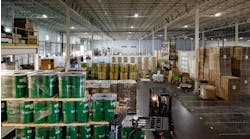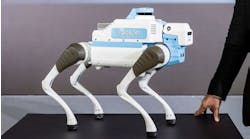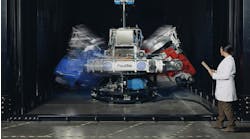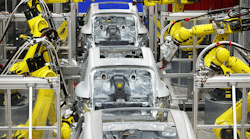“Why should it be different this time?”
That’s the most common response I hear when I raise concerns about automation and the future of jobs, and it’s a pretty simple rejoinder. The Western world managed the shift out of agricultural jobs into industry, and continued to see economic growth. So will not the jobs being displaced now by automation and artificial intelligence lead to new jobs elsewhere in a broadly similar and beneficial manner? Will not the former truck drivers, displaced by self-driving vehicles, find work caring for the elderly or maybe fixing or programming the new modes of transport?
As economics, that may well be correct, but as history it’s missing some central problems. The shift out of agricultural jobs, while eventually a boon for virtually all of humanity, brought significant problems along the way. This time probably won’t be different, and that’s exactly why we should be concerned.
Consider, for instance, the history of wages during the Industrial Revolution. Estimates vary, but it is common to treat the Industrial Revolution as starting around 1760, at least in Britain. If we consider estimates for private per capita consumption, from 1760 to 1831, that variable rose only by about 22%. That’s not much for a 71-year period. A lot of new wealth was being created, but economic turmoil and adjustment costs and war kept down the returns to labor. (If you’re wondering, “Don’t fight a major war” is the big policy lesson from this period, but also note that the setting for labor market adjustments is never ideal.)
By the estimates of Gregory Clark, economic historian at the University of California at Davis, English real wages may have fallen about 10% from 1770 to 1810, a 40-year period. Clark also estimates that it took 60 to 70 years of transition, after the onset of industrialization, for English workers to see sustained real wage gains at all.
If we imagine the contemporary U.S. experiencing similar wage patterns, most of us would expect political trouble, and hardly anyone would call that a successful transition. Yet that may be the track we are on. Median household income is down since 1999, and by some accounts median male wages were higher in 1969 than today. The more pessimistic of those estimates are the subject of contentious debate (are we really adjusting for inflation properly?), but the very fact that the numbers are capable of yielding such gloomy results suggests transition costs are higher than many economists like to think.
Industrialization, and the decline of the older jobs in agriculture and the crafts economy, also had some pernicious effects on social ideas. The early to mid-19th century saw the rise of socialist ideologies, largely as a response to economic disruptions. Whatever mistakes Karl Marx made, he was a keen observer of the Industrial Revolution, and there is a reason he became so influential. He failed to see the long-run ability of capitalism to raise living standards significantly, but he understood and vividly described the transition costs and the economic volatility.
Western economies later turned to variants of the social welfare state, but along the way the intellectual currents of the 19th century produced a lot of overreaction in other, more destructive directions. The ideas of Marx fed into the movements behind the Soviet Union, Communist China and the Khmer Rouge. Arguably, fascist doctrine also was in part a response to the disruptions of industrialization in the 19th and early 20th centuries.
I like to think we will be more intellectually moderate this time around, but the political developments of the last few years, and the observed global tilt toward the authoritarian, are hardly reassuring.
The shift of jobs away from agriculture also poisoned economic policy. Typically the U.S. government spends more than $20 billion a year subsidizing farmers, even though virtually all economists think those expenditures are wasteful. The European Union is worse yet. Although Europe has pressing problems with bank solvency, Italian and Greek debt, and refugees, an estimated 38% of the EU budget will be going to farm subsidies. Farms as a share of total employment are quite small (about 2%), but farmers as an interest group have not gone away, even hundreds of years after agricultural employment started to decline.
It is possible a similar logic may play out with the jobs that will be rendered obsolete by automation. That is, we may decide to subsidize and protect those jobs for centuries to come, to the detriment of long-run economic growth.
When it comes to automation, my all-things-considered view is still “full steam ahead,” and I might have felt the same way and bit the same bullet, had I been alive in the late 18th century. But invoking the Industrial Revolution today is not going to ease my worries.
